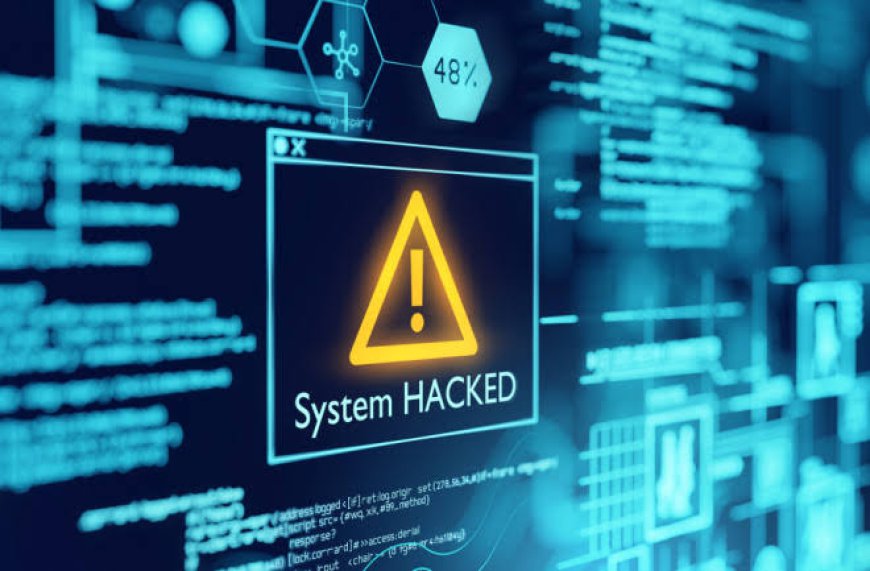Risk of cyber attacks in Bangladesh!
Day by day the use of internet is increasing in keeping with the development of the world. Government or private organizations all need internet access. Along with our internet usage, cyber attacks and cyber crimes are also increasing day by day in Bangladesh. But is the cyber security of our business organizations or government institutions strong enough to protect our organizations from cyber attacks or cyber crimes? Actually the answer is no.

Number of cyber attacks and online frauds in Bangladesh and losses caused by:
In our country, both government and private organizations are very indifferent about cyber security. As a result, the number of cyber attacks in Bangladesh is increasing at an alarming rate in recent times. According to the Ministry of Information and Communication Technology of Bangladesh, the number of cyber attacks in Bangladesh in 2016 was 389. The following year, in 2017, this number increased to 683 and in 2018, the number of cyber attacks reached 870, that is, the number of cyber attacks in Bangladesh is increasing at a rate of almost double at the end of the year. Not only that, on February 5, 2016, hackers stole about 81 million US dollars by exploiting the server vulnerability of Bangladesh Central Bank. However, no further information was released by the Bangladesh government. But currently the number of cyber attacks in Bangladesh is increasing at an alarming rate. For example, recently the official Facebook ID of Bangladesh Police was hacked and it was in the hands of hackers for about 1 week.
The number of cyber attacks in the world in recent times and the amount of damage caused by them:
According to a report in England's renowned magazine Economist, "Cyber crime rates have increased dramatically in developed countries in recent years while other crimes have been relatively low".
According to UK finance, the trade organization for UK banks, phone fraud involving tax collectors has doubled in the past few years. The rate of such fraud has also increased dramatically in other less developed countries. According to a statistic, there is about 1 cyber attack every forty nine seconds and about 2200 in 24 hours in the world.
According to the Crime Survey of England and Wales, there were almost 3.8 million online fraud incidents in the UK in 2019, which is one-third of all crimes in the country. Since the country first started collecting such data in 2017, the number of cyber fraud cases has increased at an alarming rate every year. About 7 percent of adults in the country are victims of such fraud. More than 15-16 percent of the victims made more than $1,000.
The situation in the US is almost the same. Internet-based fraud in the country increased by an average of 69 percent last year. Last year, the total loss due to internet fraud in the country was 4.2 billion dollars, that is, in Bangladeshi currency, which is about 4,494,73,92,000 taka, which is almost three times more than in 2017.
In recent times the preferred means of cyber attacks by criminals are:
Malware accounts for 93 percent of all cyber attacks globally by hackers. Below is an idea of some malware.
• Ransomware:
Ransomware is currently the most preferred malware for cyber attacks by hackers. Ransomware is a type of malware that after infecting a computer device prevents the user from accessing the device and restricts the user's access and the hacker demands a ransom from the user to remove this restriction. This malware is so powerful that it can't be unlocked by anyone other than an attacking hacker. Some of the notable ransomware are: Locker Ransomware, Crypto Ransomware etc.
• Computer Worm:
Computer worms self-replicate and infect other computers without human intervention. This malware attacks devices through weak or already infected links or files. This malware often goes unnoticed by users, usually disguised as legitimate work files. This malware is also known as stealth malware. However, cyber attacks through this malware are less.
• Computer Bot (Computer Bot):
A bot is a self-replicating malware that can spread itself to other devices, creating a network of bots or a botnet. Once infected, devices automatically perform tasks as directed by the attacker. Botnets are often used in DDoS attacks. They can conduct key logging and send phishing emails.
• Botnet (Bot Net):
Mirai is the classic example of a botnet. That started a massive DDoS attack in 2016, which continues to target IoT and other devices today. Research also shows that botnets flourished during the COVID-19 pandemic. Mirai and other botnets are capable of spreading from infected consumer devices to corporate systems as malware on employees' networks for work or at home or on company-owned devices.
Hackers using such malware collect the ransom in Bitcoin. So it becomes very difficult to find them. Because Bitcoin is a banking system that does not store any information.
Some of the current cybercrimes are:
• Identity Theft:
Identity theft occurs when a hacker uses a victim's personal identifying information, such as their name, identification number, or credit card number, etc., without their permission, to commit fraud or other crimes.
• Cyber Terrorism:
Cyber terrorism is any premeditated, politically motivated attack that threatens to cause harm or harm to a country's information systems, programs and data. The definition is sometimes called cyber terrorism when a cyber attack is carried out primarily to intimidate the general public. Attackers often do this with the intention of damaging critical infrastructure or disrupting its normal operations. Cyber terrorism is done by hurting a country's economy.
• Cyberstalking or cyber harassment:
Cyberstalking is the use of the Internet to harass an individual or a group. This may include false accusations, defamation and slander. This may include tracking or monitoring someone, identity theft, threats, vandalism, requests for sex, doxing or blackmail.
Finally let's come to ways to stay safe from cyber attacks:
• Your employees should be trained on cyber security:
One of the easiest ways for cybercriminals to gain access to your data is through your employees. They will send fraudulent e-mails impersonating someone in your organization and first try to gain access to your employee's personal details or specific files. The links he sends your staff often look legitimate to the untrained eye and are easy to fall into. Therefore training and awareness of the staff is essential.
• Keep your system and software fully updated:
Often cyber attacks happen because your system or software is not completely up to date or updated. Hence cybercriminals exploit these vulnerabilities to gain access to your network. Once they penetrate, it is often too late to take preventive measures. To combat this, it's smart to invest in a patch management system that will manage all software and system updates, keeping your system resilient and up-to-date.
• Ensure your system's endpoint security:
Ensure endpoint protection. Endpoint protection secures networks that can be bridged to remote devices connected to your system. With corporate networks, mobiles, tablets and laptops are guaranteed security and connection range. These paths must be protected with specific endpoint security software.
• Keep several copies of your important and sensitive information:
Hackers can collect your sensitive information and threaten you with financial loss so you must back up your data to avoid serious downtime, data loss and serious financial loss during a disaster.
• Confirm your access on your system:
This may be one of the most direct attacks you can get on your system, which is why it's really important to have control over who can access your network. Someone can access or infect your entire network simply by breaking into your office and plugging in a USB key containing an infected file into one of your computers. Controlling who has access to your computer is essential. Installing a perimeter security system is a very good way to stop cybercrime.
Your awareness is the greatest defense against cybercrime. We should be highly aware of cybercrime whether personal or financial institutions. Our awareness will reduce the risk of cyber attacks in Bangladesh and help us stay safe.
References: Prothom Alo, Wikipedia-Cyber Attacks, Leaf-It.com, Financial Express, TechTarget-Cybercrime, TechTarget- Malware Attacks, Wikipedia-Identity Theft, TechTarget-Cyber Terrorism, Wikipedia-Cyber Stalking


















































